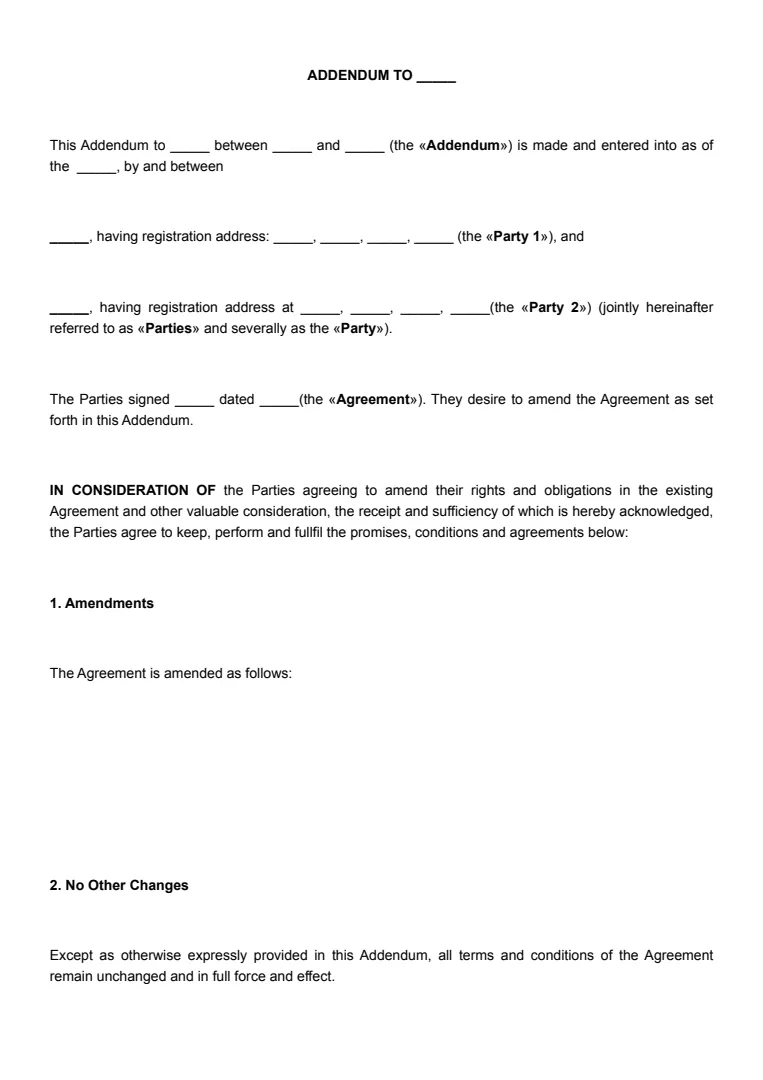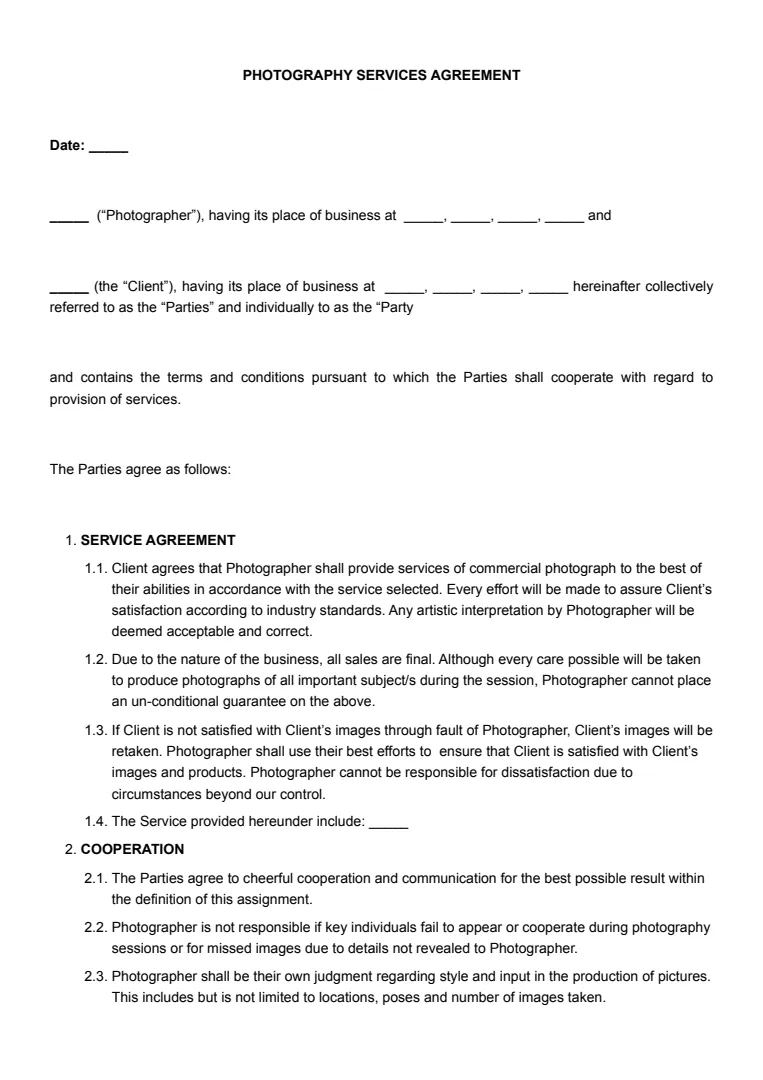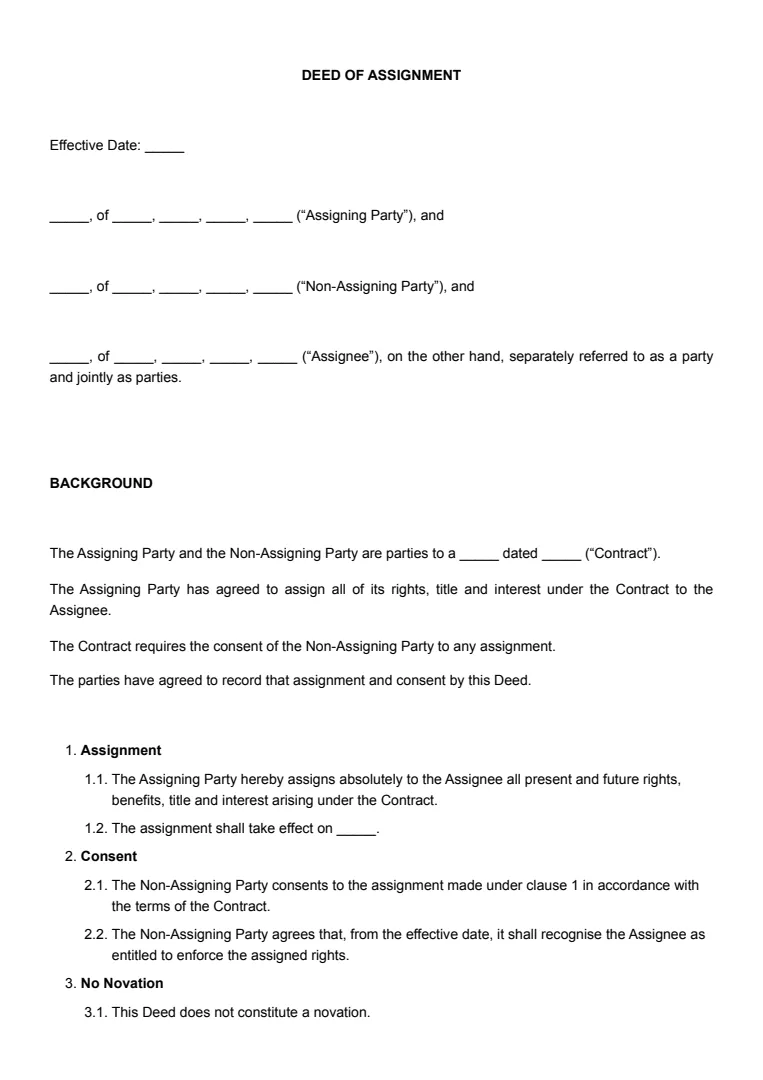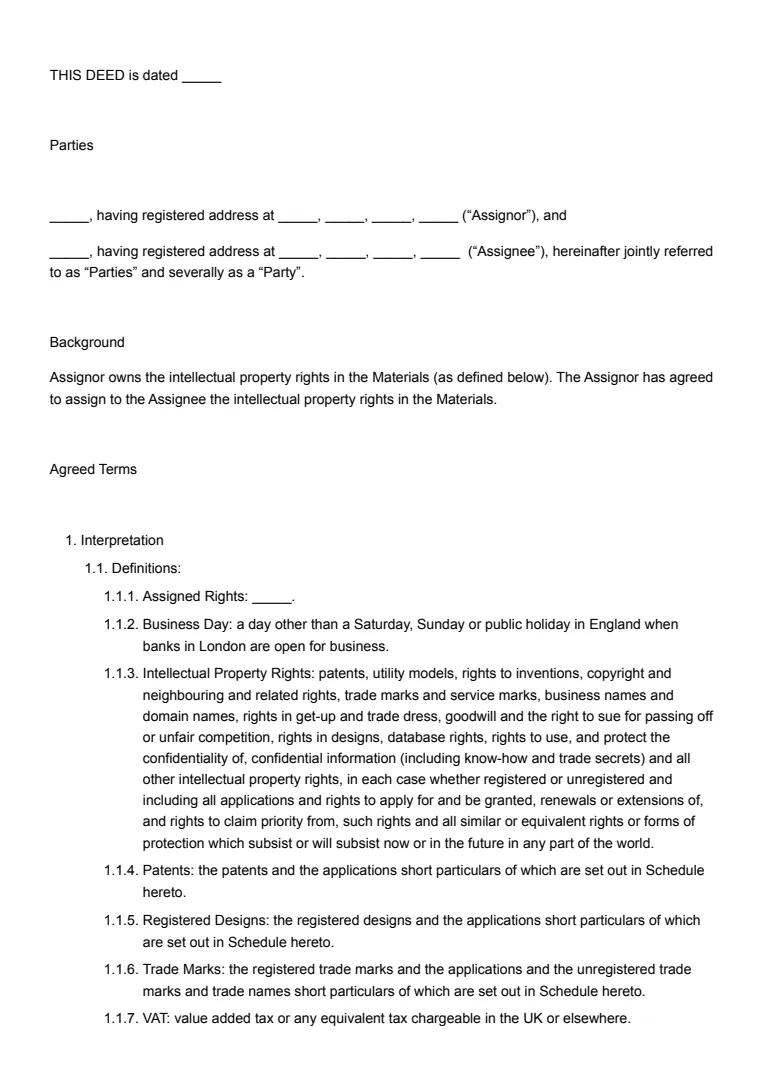What Is a Finders Fee Agreement?
A finders fee agreement, sometimes called a finder’s fee contract, is designed to reward an intermediary for facilitating a deal by connecting two or more parties. The finder’s role is typically limited to making an introduction, not negotiating or executing the transaction itself. Compensation can take the form of a fixed fee, commission percentage, or a hybrid structure, depending on industry practice and the value of the deal.
In the UK, these agreements must adhere to the Bribery Act 2010, ensuring that payments represent legitimate business incentives rather than unlawful inducements. In property contexts, finder's fee arrangements may also fall under regulations from the Financial Conduct Authority (FCA) when investment opportunities are involved. This makes having a written contract essential, not just for clarity but also for legal compliance and enforceability.
When Should You Use a Finder's Fee Agreement?
Finders fee agreements are valuable whenever a party wants to incentivise referrals or introductions that could result in revenue, investment, or acquisitions. They establish a clear framework for compensation, reducing the risk of disputes over entitlement to fees.
1. Referring Clients or Customers
In industries like consulting, finance, and professional services, referrals are often the backbone of new business acquisition. A well-drafted finder's fee agreement not only ensures fair compensation for the finder but also establishes clarity around how client attribution works. For instance, the agreement may specify whether the finder receives compensation for the initial introduction only or for all future work with that client over a defined period.
This prevents misunderstandings about long-term revenue streams. It can also include rules for situations where multiple finders may have connections to the same client, outlining how credit is allocated. By documenting these details, both parties avoid disputes that could otherwise harm professional relationships.
Expert Tip:
“Always define whether the fee applies only to the first project with a client or to future business as well. Many disputes arise when a finder expects ongoing commissions while the principal assumes it was a one-off payment.”
2. Property Transactions
Property deals often involve multiple parties, such as agents, brokers, developers, and investors, making it critical to clearly outline who is entitled to a fee. A property finders fee agreement can specify whether the fee is a flat rate, a percentage of the property purchase price, or tied to rental income if the property is being leased. It may also cover different deal types, such as residential purchases, commercial leases, or development opportunities, since payment expectations can differ in each context.
Another key element is timing: the agreement can require payment upon exchange of contracts, completion, or only once funds are cleared. Without this clarity, parties risk disputes over unpaid commissions or overlapping claims when multiple finders are involved in sourcing the same property.
3. Investment Opportunities
In startup and corporate finance, finders are often tasked with introducing businesses to investors, lenders, or strategic partners. These agreements must go beyond basic fee arrangements by addressing compliance with securities regulations, particularly if the transaction involves equity or financial products. For example, in the UK, certain introductions may require the finder to be authorised by the Financial Conduct Authority (FCA) if they cross into regulated activities.
The contract should also define whether the finder’s compensation is linked to funds actually received, committed capital, or future tranches of investment. Finders international fees add another layer of complexity; currency exchange, cross-border tax rules, and varying legal frameworks must all be considered. This makes detailed, transparent agreements essential for protecting both the business raising funds and the intermediary facilitating introductions.
4. Recruitment and Talent Sourcing
Recruitment-based finders fee UK contracts are common in industries where competition for talent is high, such as technology or healthcare. These agreements should not only define when the fee is payable but also include provisions for refund or partial repayment if the candidate leaves within a probationary period.
Some contracts may outline tiered structures, for example, a reduced fee if the candidate leaves after three months but before six. Another consideration is exclusivity: the agreement may grant the recruiter sole rights to present candidates for a role within a set timeframe, preventing disputes with other recruiters.
Additionally, confidentiality is critical, as recruiters often handle sensitive personal and company information. Including these details ensures that the agreement is not just about fees but also about protecting both the employer’s and the candidate’s interests.
How to Write a Finder's Fee Agreement
Drafting a solid finder's fee agreement requires a balance of clarity, fairness, and legal compliance. Instead of relying on generic templates, Legally.io is a platform that allows businesses to generate tailored agreements that comply with jurisdictional requirements while saving time and minimising legal risks.
Step 1: Identify Parties and Define Scope
Every finder's fee agreement should begin by clearly identifying the parties involved, including full legal names, business names, and registered addresses. This avoids ambiguity if disputes later reach arbitration or court. Beyond simply naming the parties, the agreement should define the finder’s exact role, whether they are only responsible for introducing two parties or whether their duties extend to performing background checks, coordinating meetings, or assisting in negotiations.
For example, a finder in a property transaction may simply provide contact details of the seller, whereas in investment deals, they may be expected to facilitate investor introductions and follow-up communications. Precise scope definitions also prevent “scope creep,” where a finder tries to claim payment for activities outside the original arrangement.
Step 2: Specify Compensation Structure
The compensation framework is the heart of a finder's fee agreement, and vague language here often leads to disputes. Contracts should outline not only the type of fee (flat, percentage-based, or hybrid) but also the calculation method. In property, this could mean 2% of the final purchase price, while in recruitment, it might be 20% of a candidate’s first-year salary. Agreements should also address expenses: Will the finder be reimbursed for travel or marketing costs?
Will the fee be inclusive of VAT or other taxes? Clearly spelling out the fee structure helps both parties manage expectations and budget appropriately. Including worked examples or illustrations in the contract (e.g., showing how fees change based on different deal values) can further reduce confusion.
Expert Tip:
“Use worked examples in the agreement to show how fees will be calculated. For instance, demonstrate how a 2% commission applies to a £500,000 property deal. Concrete illustrations reduce misunderstandings and build trust.”
Step 3: Clarify Exclusivity and Territory
Exclusivity clauses determine whether one finder has the sole right to earn a fee for a given deal or whether multiple finders can compete for the same opportunity. While exclusivity can motivate a finder to prioritise the deal, it can also limit the principal’s ability to engage others. The contract should be explicit about whether exclusivity is granted, for how long, and under what circumstances it expires.
Territory clauses add another layer, defining geographical or sector-specific boundaries where the finder is authorised to operate. For instance, a finder may be granted exclusivity in the UK market but not internationally, allowing the principal to engage others overseas. These provisions are particularly important in industries like real estate and recruitment, where overlapping claims to introductions are common.
Expert Tip:
“Be explicit about exclusivity and territorial limits. If you grant exclusivity, specify both the duration and scope. For example, an agent may have exclusivity for six months within London but not in other UK regions.”
Step 4: Establish Payment Timing and Conditions
The timing of payment is one of the most contentious elements in finder relationships. Agreements should specify when the fee becomes due, such as upon signing of a contract, closing of a transaction, or receipt of funds by the principal. In recruitment, for example, it may be prudent to tie payment to a candidate’s successful completion of a probationary period, ensuring the introduction results in a lasting hire.
A finders fee in property might be payable only upon legal completion of a sale, not at the offer stage. A finders fee contract should also address partial or staged payments for larger deals, especially when funds are released in tranches. Including conditions for refunds or fee adjustments, such as when a deal falls through after initial payment, further strengthens the agreement’s fairness.
Step 5: Insert Legal Protections and Termination Clauses
Strong legal protections are essential to safeguard both parties’ interests. Confidentiality clauses ensure that sensitive information, such as client lists, pricing models, or financial data, cannot be shared without permission. Anti-bribery and compliance provisions are particularly important in the UK and international contexts, where laws like the Bribery Act 2010 impose strict liability on businesses that fail to prevent corrupt practices.
Dispute resolution clauses can outline whether conflicts will be handled through negotiation, mediation, arbitration, or litigation, and specify governing law and jurisdiction to avoid costly cross-border disputes. Termination clauses provide clarity on when and how the agreement can be terminated, for instance, due to non-payment, breach of obligations, or the natural expiration of a contract term. Including notice periods and obligations upon termination, such as returning confidential materials, ensures the end of the arrangement is as clear as its beginning.
Expert Tip:
“Always include a dispute resolution clause before conflicts arise. Mediation or arbitration can be faster and less costly than litigation, especially in cross-border agreements.”
What Should a Finder’s Fee Agreement Contain?
A strong agreement should include the following elements:
- Purpose and Scope – Clearly state the purpose of the agreement and the finder’s responsibilities.
- Parties Involved – Identify the finder and the principal by legal names and contact information.
- Fee Structure – Outline whether the fee is fixed, commission-based, or hybrid.
- Exclusivity and Territory – Define if the arrangement is exclusive and the geographical area where it applies.
- Payment Terms – Explain when the fee is payable, how it will be paid, and under what conditions.
- Termination Clauses – Provide specific grounds and procedures for ending the agreement.
- Compliance and Legal Protections – Reference relevant legislation, such as the Bribery Act 2010, UK GDPR, or financial regulations where applicable.
Including these components ensures the agreement is transparent, enforceable, and legally sound. Using Legally.io’s finder’s fee agreement template ensures that everything you need is included.
Legal Tips for Writing a Finder’s Fee Agreement
- Stay Compliant With Local Regulations: Ensure the agreement complies with national and industry-specific laws. In the UK, this means observing anti-bribery and anti-money laundering laws, and in property deals, compliance with FCA rules when relevant.
- Clarify Ambiguities Around Exclusivity and Territory: Disputes often arise when multiple finders claim the same deal. By clearly stating exclusivity rights and territory limitations, both parties know the boundaries of the agreement.
- Put All Agreements in Writing: Verbal promises are notoriously difficult to enforce. Always create a written document that details all obligations, fee structures, and termination rights. This protects both the finder and the principal if disagreements surface.
- Protect Confidential Information: Confidentiality clauses protect sensitive business data, client details, and financial records. These provisions must also align with data protection regulations, such as the UK GDPR, to avoid legal penalties.
Key Takeaways
Finder's fee agreements are essential tools for formalising how intermediaries are compensated for referrals and introductions.
They provide clarity, reduce disputes, and ensure legal compliance.
Whether in property, recruitment, or investment, well-drafted contracts strengthen business relationships by aligning expectations.
Legally.io is a platform that simplifies the process with customisable templates that help businesses draft agreements suited to their specific industry and jurisdiction.















